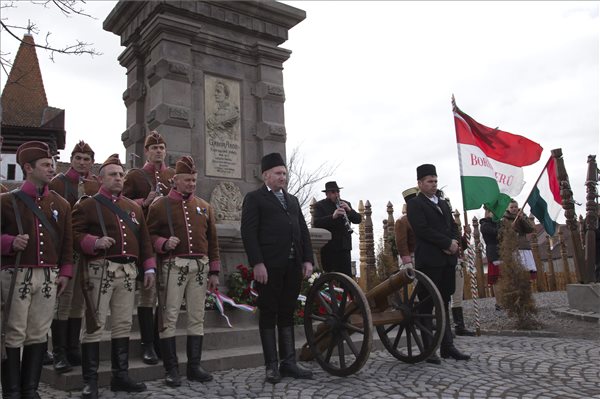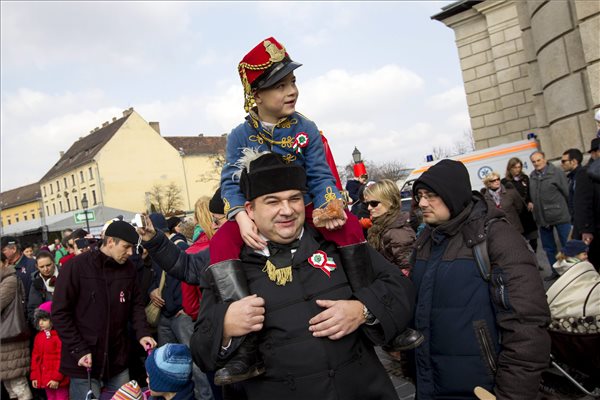Carpathian Basin
Hungary welcomes Covasna court overturning national anthem fine

Justice minister calls for unity among ethnic Hungarians south of border

Govt official opens Petofi scholarship programme

March 15 – Hungarian national holiday marked around the world

March 15 – Hungary marks national holiday – Photo Gallery

Over 0.7 million apply for Hungary citizenship

Deputy Prime Minister: New Hungarian citizens to number 1m by 2018

Hungary, August 20 – Photo Gallery

Eleven Awards Granted to Hungarians Abroad

Deputy Prime Minister: Ethnic Hungarians Entitled To Voting Rights, Autonomy

Jobbik Calls On Government To Protest Against Enlisting Of Ethnic Hungarians In Ukraine

Hungarian affairs in Brussels hot topic at Martos Free University closing forum

Govt Official Voices Commitment To Slovakia Ethnic Hungarian Party

“Csíksomlyói Búcsú” – Exclusive Photo Gallery

Semjen Addresses National Cohesion Day

Prince Charles Dancing For Folklore Music In Szeklerland

“Csíksomlyói Búcsú” – The Largest Catholic Celebration Of The Year For Hungarians On June 7
Prince Charles Is Visiting Szeklerland





 ZH
ZH IT
IT DE
DE HR
HR NL
NL FR
FR JA
JA RO
RO RU
RU ES
ES TR
TR
